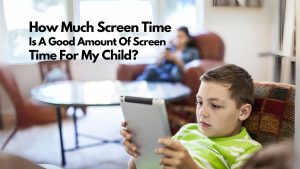I receive questions from parents from all over the United States asking how to keep their children safe online. When I get a good question that I think other parents can benefit from, I will share it with you.
This question comes from Maria in Long Beach, California. Maria asks:
“Do you have a policy on how much a child should be using their phone per day? If so, how do you regulate that? I realize I AM THE PARENT but my daughter just thinks “”I am the ONLY mom that has a problem with her phone”” I am about to present her with the Usage contract and wanted to create a few extra things of my own, especially the time she is on it. Any suggestions would be helpful.”
The average 8 to 10 year old (in 2013 study) may be in front of a screen up to eight hours a day, some teens up to 11 hours a day, with 75 percent of teens owning their own phones and nearly all teens texting. Parents should make a media use plan, including mealtime and bedtime curfews for media devices. “A healthy approach to children’s media use should both minimize potential health risks and foster appropriate and positive media use—in other words, it should promote a healthy ‘media diet’, “Parents, educators and pediatricians should participate in media education, which means teaching children and adolescents how to make good choices in their media consumption.” said Marjorie Hogan, MD, FAAP, co-author of the American Academy of Pediatrics’ screen time policy recommendation.
I recommend parents start with The AAP’s guidelines of two hours of recreation screen time for teens, but with some built in flexibility. Additional screen time can be earned when the child completes chores or some other parent directed task. I’ve had parents tell me they give 30 minutes of screen time for every hour their child exercises outside, or after they clean their room. Additional screen time can be earned or lost based on the child’s performed duties or behavior. Whatever plan you decide to implement in your home, I would recommend that recreational screen only start once homework or other priority tasks are completed. I would also recommend that there be a buffer of an hour or more of no screen time before bed. Recent studies have shown that looking at a bright LCD screen before bed can prevent restful sleep. In case you haven’t taken my class or read my book, electronic devices should not be allowed to be in children’s bedrooms after lights out.
Making a screen time limit policy in your home is easy. Enforcing it is difficult. I recommend installing a screen time parental control on your child’s device. They are available on both mobile devices and desktop computers. I do not endorse a specific application but there are ample user reviews to help you choose the right one for you. When the application locks the device after the teen uses up their screen time, it takes the emotion out of it. They aren’t directly looking at you as the bad guy, the application turned off their access, not you.
American Academy of Pediatrics’ recommendations for screen time include:
- Limit the amount of total entertainment screen time to <1 to 2 hours per day.
- Discourage screen media exposure for children <2 years of age.
- Keep the TV set and Internet-connected electronic devices out of the child’s bedroom.
- Monitor what media their children are using and accessing, including any Web sites they are visiting and social media sites they may be using.
- Co-view TV, movies, and videos with children and teenagers, and use this as a way of discussing important family values.
- Model active parenting by establishing a family home use plan for all media. As part of the plan, enforce a mealtime and bedtime “curfew” for media devices, including cell phones. Establish reasonable but firm rules about cell phones, texting, Internet, and social media use.
Parents these days need to monitor how much time is spent in front of a screen, what their children are watching, how they are interacting with each other on social media, and make sure that essentials such as meal times, bed times, school work and active play are included in their child’s daily life. The guidelines suggest that we, as parents, are going to have to work harder to make sure our kids get what they need in this electronic universe.




